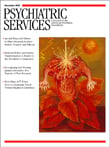Freud in Fiction
The authors of these three novels, each of which involves Sigmund Freud, all have day jobs in addition to being authors. Jed Rubenfeld, author of The Interpretation of Murder , is a professor of law at Yale University. Nicolle Rosen, whose product is Mrs. Freud , is a psychiatrist in Paris. Catherine Gildiner, responsible for Seduction , is a clinical psychologist in private practice in Toronto. Two of the authors brought their long-dormant, earlier academic work to bear on their fiction. Rubenfeld wrote his senior thesis as a Princeton undergraduate on Freud and studied Shakespeare at the Juilliard School of Drama. Gildiner wrote her doctoral thesis on the influence of Darwin on Freud. What the three authors have in common is providing their audience with examples of what an arduous task it is to write an engaging piece of fiction with Freud as a major character.
The come-on for The Interpretation of Murder , presented in large font on the back cover, reads, "In 1909, as the world went modern, a great genius paid his only visit to American shores. Little of what happened on this trip is known. Since then, many have wondered what befell him on his journey to turn-of-the-century Manhattan." I was intrigued by the book because the cover also mentions Freud's trip to Worcester, Massachusetts, to accept an honorary degree at Clark University. I, probably like 99.9 percent of the U.S. population, do not wonder what happened to Freud in turn-of-the-century Manhattan. And unfortunately, the novel ends before Freud gets to Worcester.
It takes a long time to get into The Interpretation of Murder , but when you finally do, the reward is only a mildly engaging mystery. The author's tone is hard to follow because it changes from being serious to sometimes sounding like Abbott and Costello doing "Who's on First?" Neither Freud nor any of his contemporaries—including Smith Ely Jelliffe, Abraham Brill, Carl Jung, and Morton Prince—come off terribly well. Freud comes off as a xenophobic, precious little man with urinary incontinence.
Rosen's Mrs. Freud is a novel that allows Sigmund Freud's wife to take center stage and remark that her own historical role has always put her in the wings. In this story, Freud comes off as a de facto polygamist, married—at least spiritually—to his wife and to his wife's sister. This novel is about Martha Freud's self-liberation after years during which "so much has been repressed." The reader might note that either the author or Mrs. Freud probably meant "suppressed."
If Freud is somebody you respect, stay away from this book too. The novel is filled with such gems as "Unfortunately, Sigi wasn't able to establish proper boundaries between the couch and family life." You're also advised to skip this novel if Anna Freud is one of your heroes. Jealousy between a mother and her daughter is as rampant here as it is in Snow White . Rosen's novel is also quite repetitious, demonstrating that either Martha Freud or Rosen unsuccessfully resisted the repetition compulsion.
Gildiner's Seduction is the most engaging of the three books, but she also cheats the most. In order to make her fiction work, she stretches the lifetimes of both Sigmund and Anna Freud by rooting her book in 1982. The book is replete with pop psychology explanations of Freud and is weighted down with references that will completely pass by anyone who didn't grow up in 1950s America or didn't raise children in that era. References are made to such items and people as Bosco, Rosie Greer, Ed Norton, and Jan Morris. For those not in the know, the first was a chocolate syrup for milk, the second a New York Giants football player, the third Ralph Kramden's neighbor on The Honeymooners, and the fourth a British transsexual author. These and many other references are inserted for no apparent useful purpose.
Seduction provides all sorts of interesting perspectives, such as "Prison psychiatrists are the bottom-feeders of an already suspect profession." You also get "Male analysts are usually castrated and the women are sexless neurotics" and "Psychiatric patients are usually the disenfranchised. The schizophrenics who complain are dismissed as fruitcakes and the neurotics rarely get better anyway."
In considering these three novels, it may be worth recalling that Freud once stated, "What progress we have made. In the Middle Ages they would have burned me. Now they are content with burning my books." I would hardly suggest that anyone purchase one of these three novels to burn it, nor would I suggest that anyone purchase one of these three novels to read it. Readers who are informed about psychiatry will be frustrated, and those uninformed about psychiatry will be misled.



